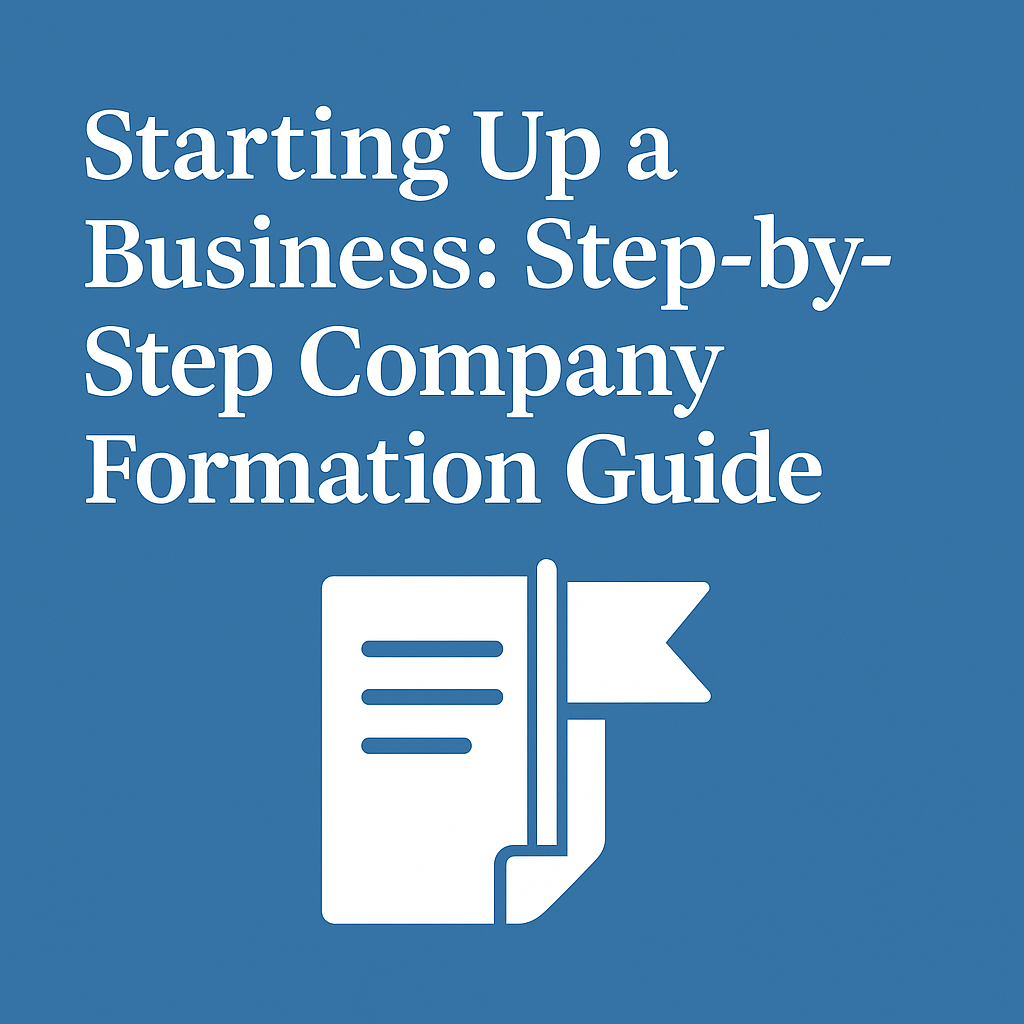Sole Trader vs Limited Company: Which Business Structure Is Best for 2025?
Sole Trader vs Limited Company: Which Business Structure Is Best for 2025?
Updated 17/07/2025
Looking to start a business or restructure your existing one? Choosing between operating as a sole trader or forming a limited company is one of the most important decisions you’ll make. This in-depth guide explores both business structures in detail, helping you make the right choice for 2025 based on liability, tax, funding, admin, and long-term goals.
This guide is written for entrepreneurs, freelancers, contractors, and small business owners who want to make the most tax-efficient, compliant, and scalable decision.
What Is a Sole Trader in the UK?
A sole trader is the most straightforward way to run a business. As a sole trader, you are personally responsible for all aspects of the business, including profits, debts, and tax payments.
Advantages:
Quick and inexpensive setup
Simple tax responsibilities (Self Assessment)
Direct control over profits
Fewer regulatory obligations
Disadvantages:
Unlimited personal liability for debts
Less credibility with investors or lenders
Tax inefficiencies as income grows
Harder to separate personal and business finances
What Is a Limited Company?
A limited company is a separate legal entity from its directors and shareholders. It is registered with Companies House and must follow corporate regulations.
Advantages:
Limited liability protection for directors
Greater tax efficiency above certain profit thresholds
Easier access to funding and grants
Improved credibility and brand perception
Disadvantages:
More complex setup and reporting
Greater accountancy and compliance costs
Public disclosure of business details
Sole Trader vs Limited Company: Tax Comparison for 2025
Taxation for Sole Traders:
Income Tax based on total profits
Class 2 and Class 4 National Insurance Contributions
Submit Self Assessment annually
Taxation for Limited Companies:
Corporation Tax (19%–25%) on profits
Dividends and salaries taxed separately
Must file Annual Accounts and Corporation Tax Return
Tax Example: On £50,000 profit:
Sole trader pays Income Tax + NICs on full amount
Company pays Corporation Tax, and directors can optimise income via dividends
Personal Liability and Financial Risk
Sole Trader:
You are personally responsible for all debts and legal liabilities. If the business fails, personal assets (home, savings) are at risk.
Limited Company:
Company debts are separate from personal finances. Personal liability is limited to the capital you invest or guarantee.
Accounting and Administration
Sole Trader Requirements:
Register with HMRC
Keep financial records
File annual Self Assessment
Limited Company Requirements:
Register with Companies House
File annual accounts and confirmation statements
Submit Corporation Tax returns
Run PAYE for directors/employees
Possibly register for VAT
How You Get Paid: Profit Extraction
Sole Trader:
All business income belongs to you post-tax
No need to formally declare dividends or salary
Limited Company:
Directors usually take a low salary + dividends
More tax-efficient profit extraction when planned properly
Reputation and Business Credibility
A limited company appears more established and trustworthy. Clients in certain sectors (e.g. construction, finance) may prefer working with incorporated businesses. You also gain brand protection when you register your company name.
Funding and Growth Potential
Sole traders may face hurdles in obtaining business loans or investments due to personal liability and lack of formal structure.
Limited companies can:
Issue shares to investors
Apply for business loans and grants
Access R&D tax credits and other incentives
Privacy and Public Records
Sole Traders:
Personal and business details remain private
Limited Companies:
Business details (including directors and shareholders) are public via Companies House
Use of registered office address can protect your home privacy
Can You Switch from Sole Trader to Limited Company?
Yes. Many businesses start as sole traders and incorporate later. This is common when:
Revenue increases
Tax efficiency becomes a priority
Liability protection is needed
Steps to transition:
Register with Companies House
Inform HMRC
Transfer contracts, assets, and bank accounts
Get support from your accountant to ensure a smooth transition
Summary Table: Key Differences
FeatureSole TraderLimited CompanySetup Time & CostQuick and freeMore involved, some setup costsTaxationIncome Tax + NICsCorporation Tax + DividendsLiability ProtectionNoneYes, personal assets protectedAdministrationLowModerate to highFunding OptionsLimitedBetter access to fundingCredibilityLowerHigher perceived professionalismPrivacyFull privacyBusiness details are public
Which Business Structure Is Best for You in 2025?
Choose sole trader if:
You’re just starting out or testing an idea
You want low setup and admin
Your profits are below £30,000/year
Choose limited company if:
You want to reduce personal risk
You earn over £30,000 and want tax efficiency
You’re looking to scale or attract investment
Get Expert Help from Clear Blue Sky Accountancy
Need help choosing the right structure or switching your setup? We work with over 500 UK businesses, helping them navigate the pros and cons of being a sole trader vs a limited company.
📞 Call now:
01752 546732 / 07398 720140 / 07591 261639
📧 Email:
office@clearblueskyaccountancy.co.uk
info@clearblueskyaccountancy.co.uk
Our experienced team can:
Set up your business structure
Handle registration, bookkeeping, and tax filing
Provide year-round advice to maximise efficiency
RELATED CONTENT
How to Pay Yourself Tax-Efficiently as a Business Owner
Cloud Accounting Can Save You Time and Money
Tax Planning Tips
What to Expect From Your Accountant (and What They Expect From You)
How to Prepare Your Business for HMRC Investigations
Sole Trader vs Limited Company: Which Is Best for You in 2025?
Starting a Business: Step-by-Step Company Formation Guide (UK)
Payroll vs CIS: What’s the Difference and Which One Applies to You?











